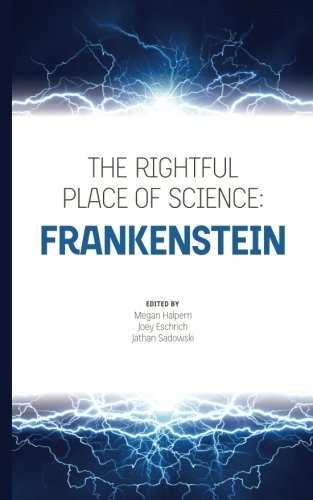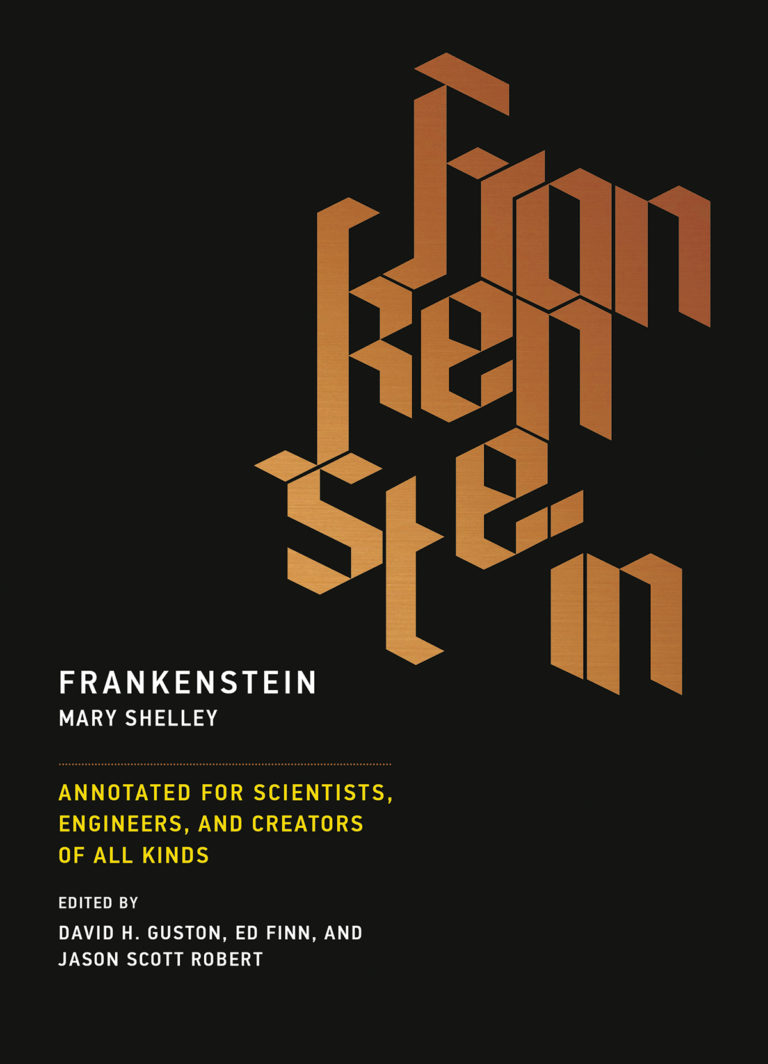‘Frankenstein’ Has Become a True Monster
Ed Finn and David H. Guston The Wall Street Journal
Out of Control
Richard Holmes
The New York Review of Books

The Rightful Place of Science: Frankenstein
Edited by Megan Halpern, Joey Eschrich, and Jathan Sadowski Get the book Two hundred years after its publication, Mary Shelley’s Frankenstein; or, The Modern Prometheus continues to speak to modern concerns about science, technology, and society. The story of Victor Frankenstein and his creature has become a cultural touchstone through myriad theatrical renditions, movies, and other adaptations and allusions. But Shelley’s original tale is richer and more relevant to contemporary issues than the common interpretation of Frankenstein as a warning against scientific hubris.
CSI Conversations: Cory Doctorow
Cory talks about his new novel Walkaway and his essay in the book Frankenstein: Annotated for Scientists, Engineers, and Creators of All Kinds, a new critical edition edited by the leaders of ASU’s Frankenstein Bicentennial Project.

Frankenstein: Annotated for Scientists, Engineers, and Creators of All Kinds
Get the book This edition of Frankenstein pairs the original 1818 version of the manuscript—meticulously line-edited and amended by Charles E. Robinson, one of the world’s preeminent authorities on the text—with annotations and essays by leading scholars exploring the social and ethical aspects of scientific creativity raised by this remarkable story. The result is a unique and accessible edition of one of the most thought-provoking and influential novels ever written.
Why Frankenstein is a Stigma Among Scientists
Peter Nagy, Ruth Wylie, Joey Eschrich, Ed Finn Science and Engineering Ethics Download article
How Frankenstein’s Monster Became Sexy
Joey Eschrich
Slate – Future Tense
It’s Alive! Frankenstein’s Influence 200 Years Later
By Sarah Ventre, KJZZ 91.5 FM
NSF Transmedia Project
Mary Shelley’s Frankenstein is a modern myth; a 200-year-old science-fiction story with themes of human creativity, societal responsibility and scientific ethics. Two centuries later, these themes continue to resonate in our technological age. As